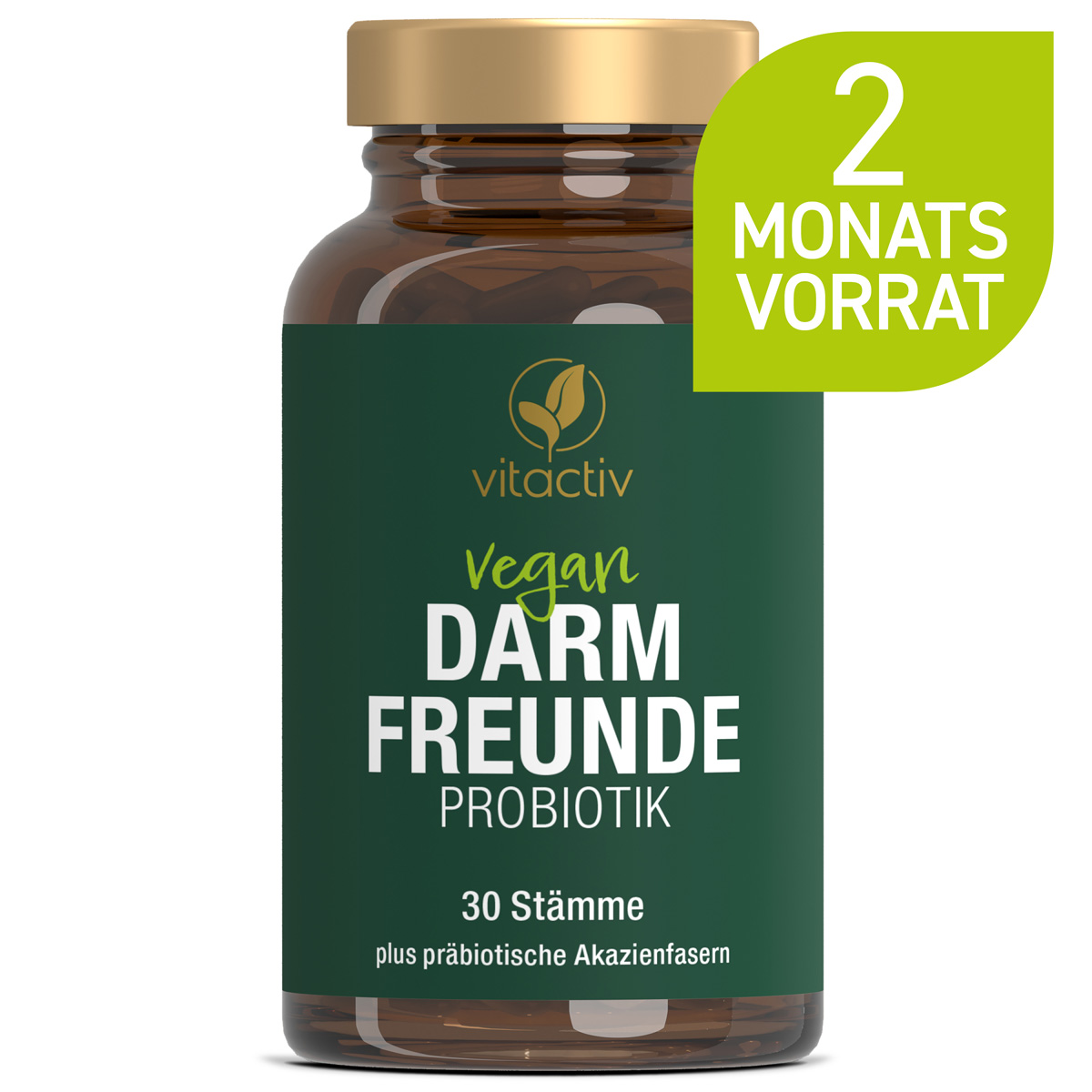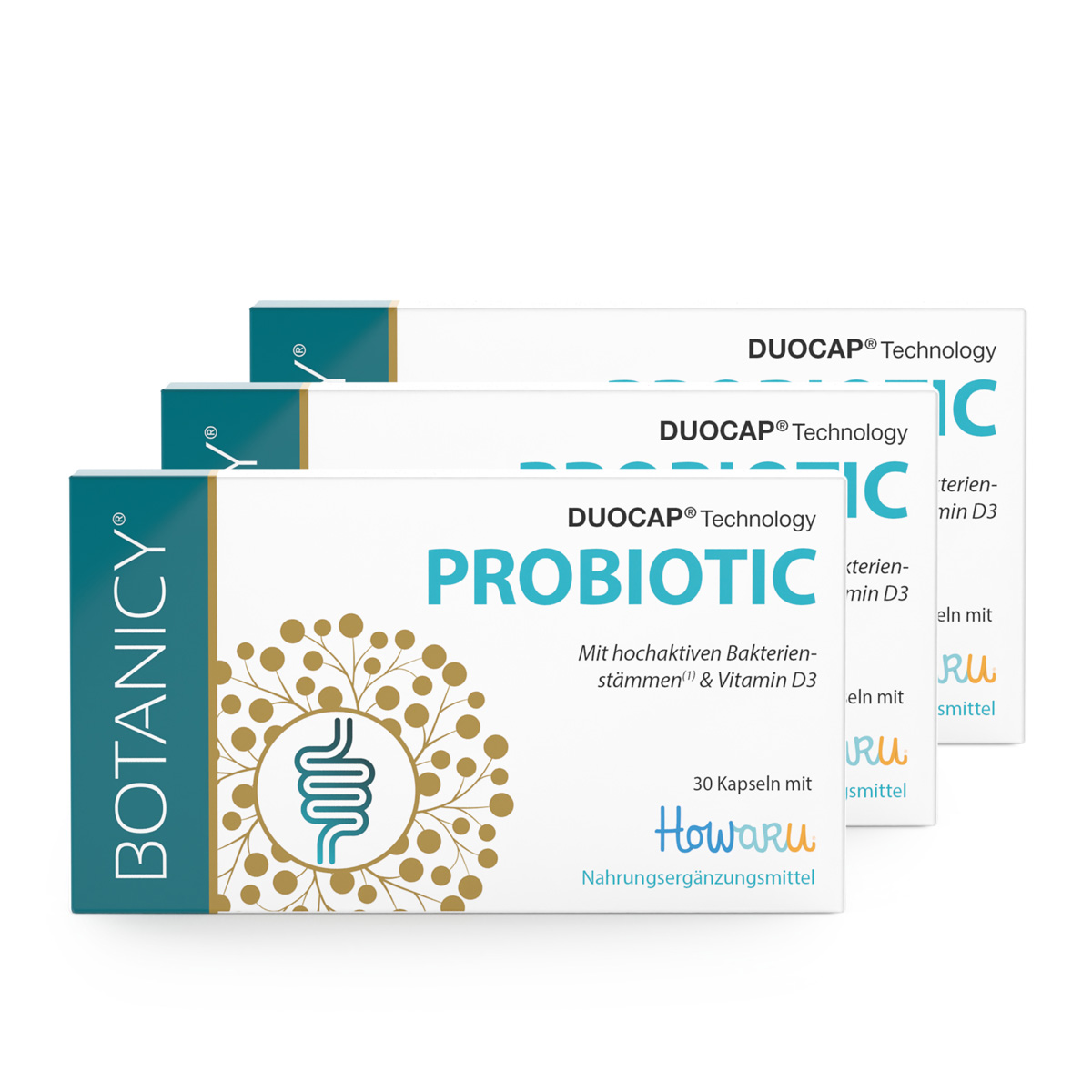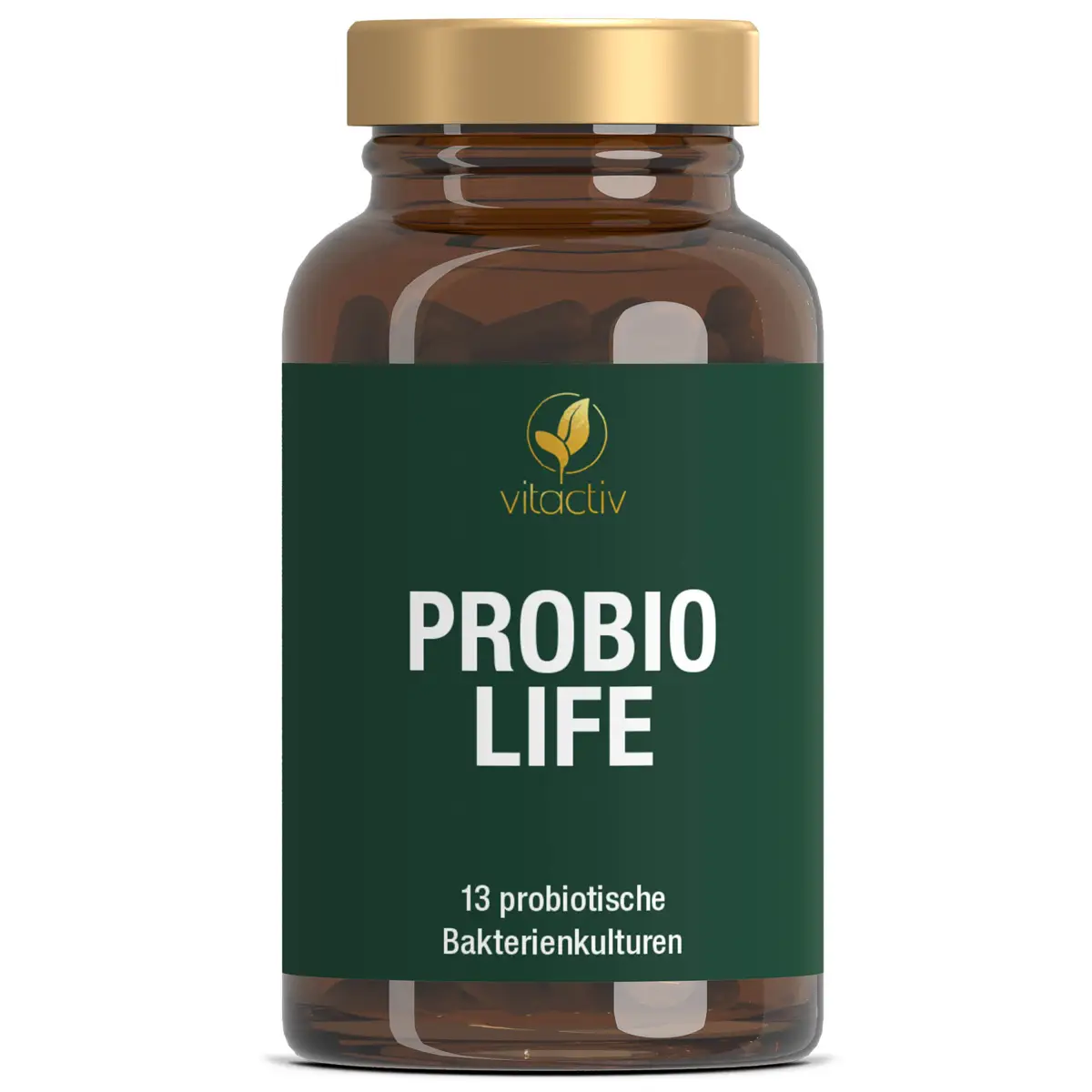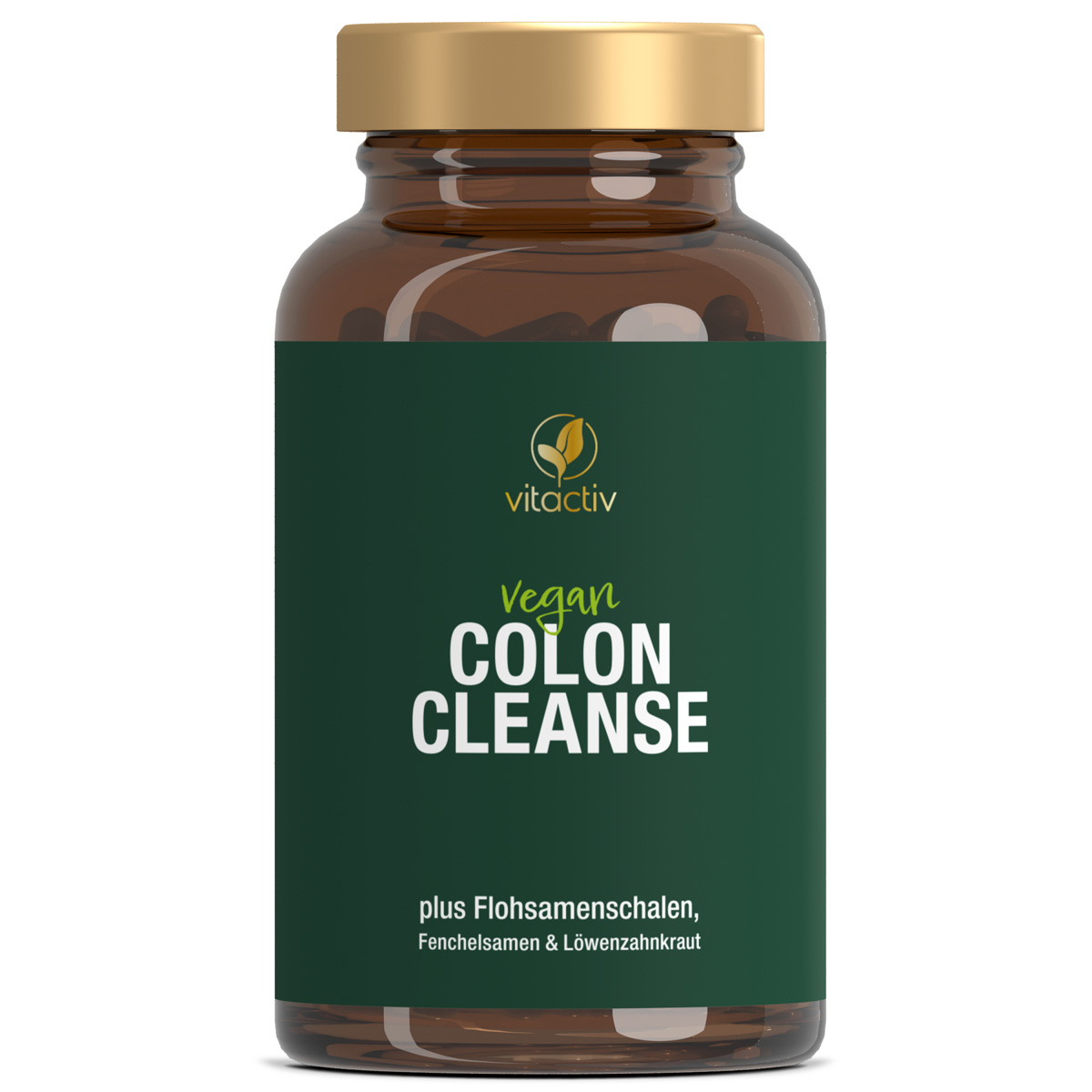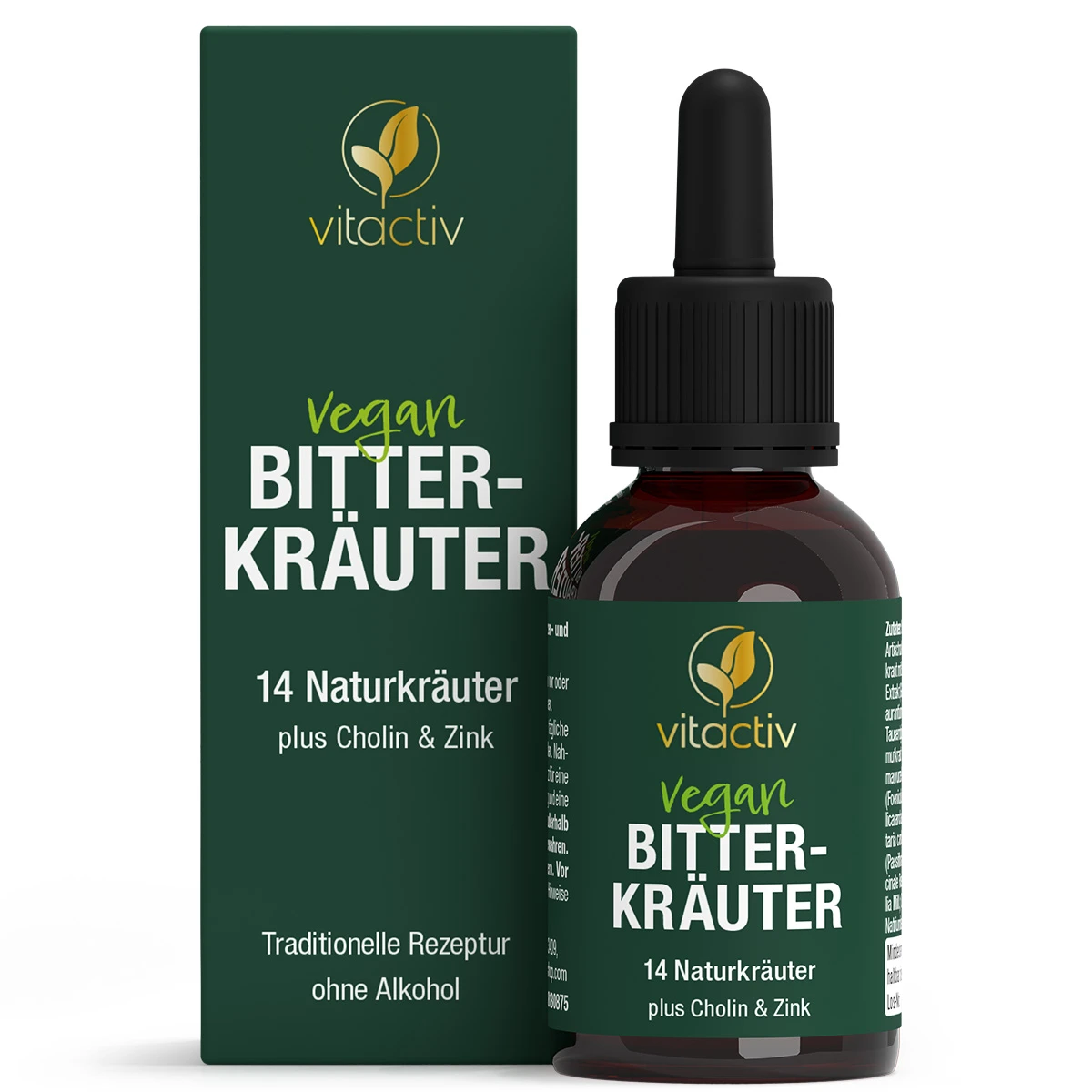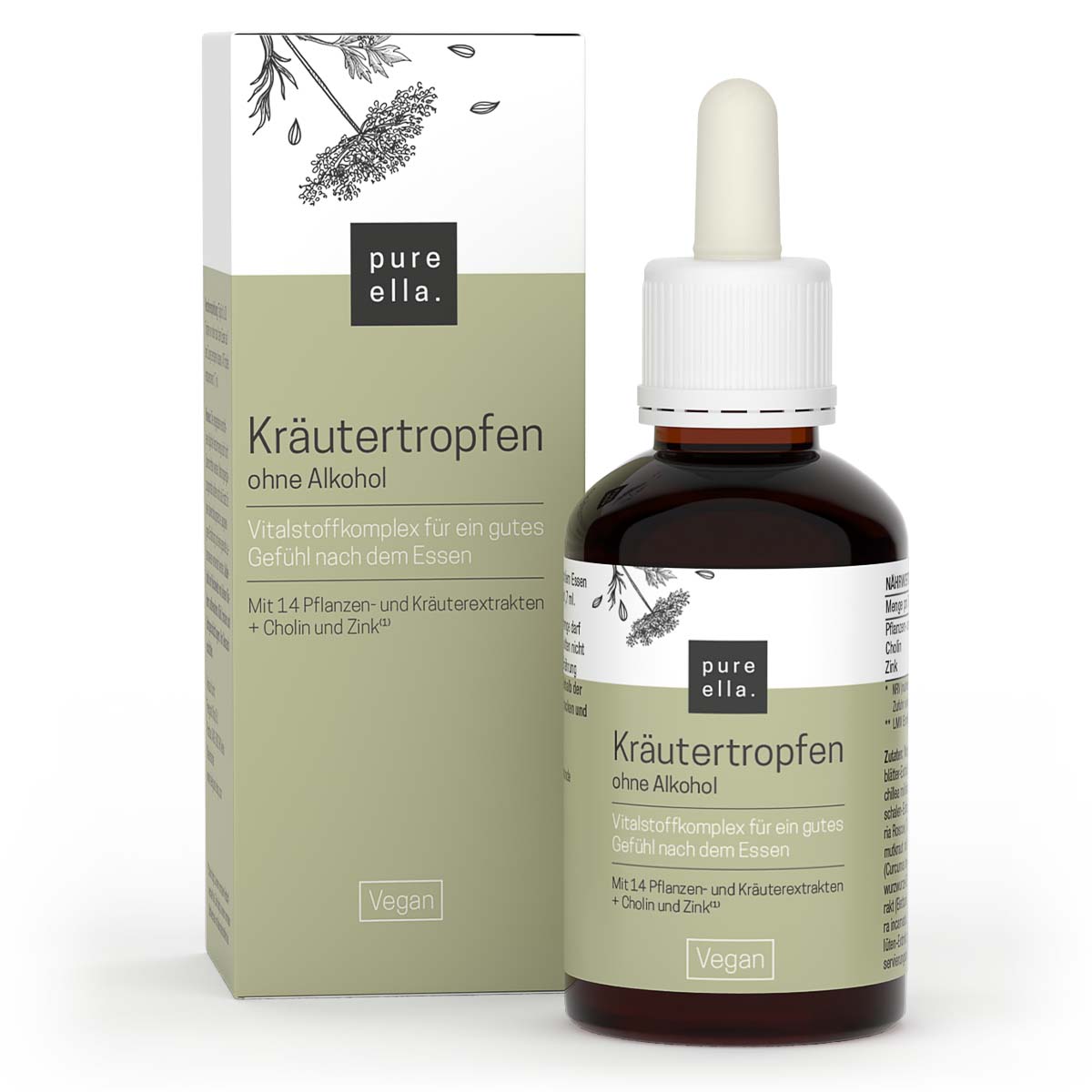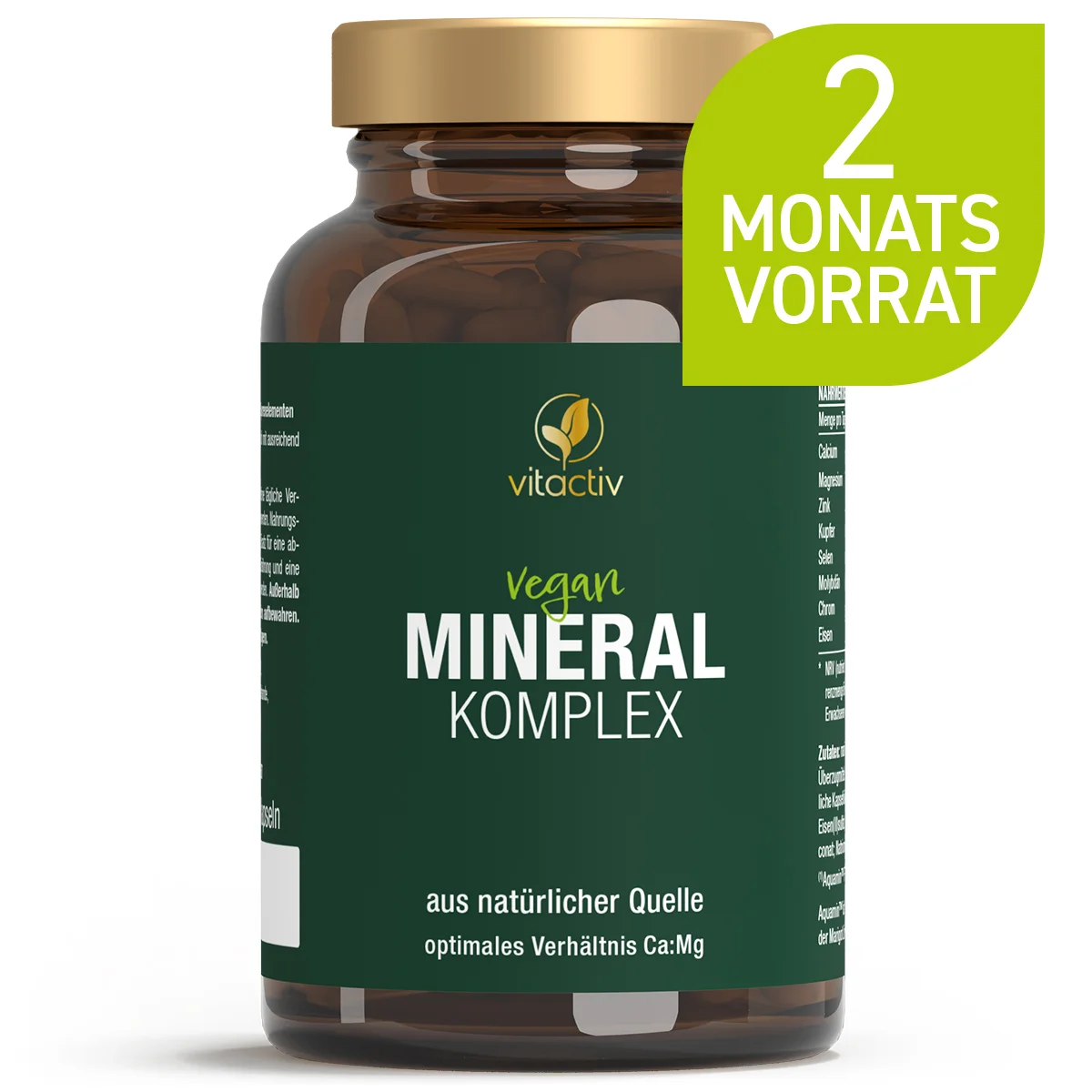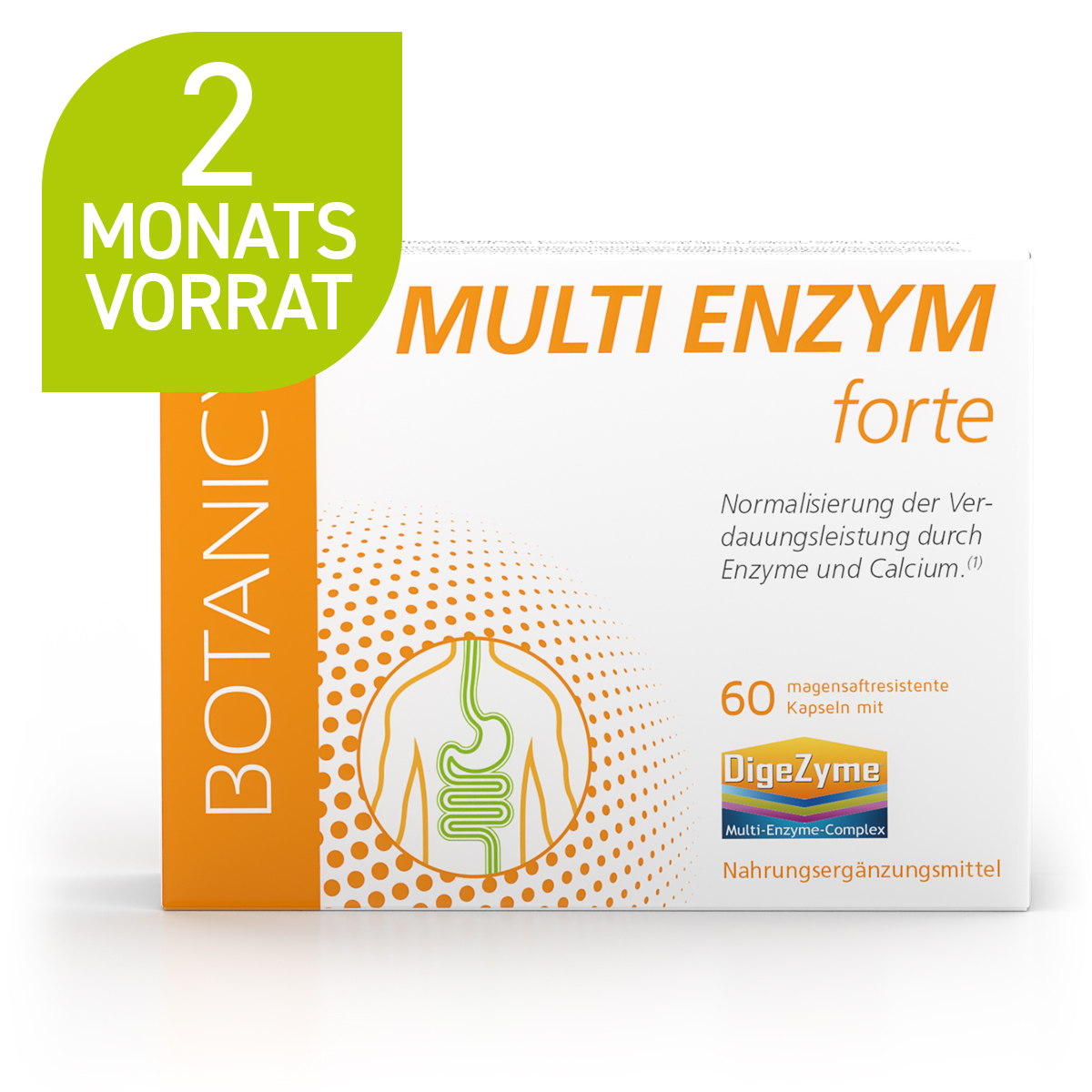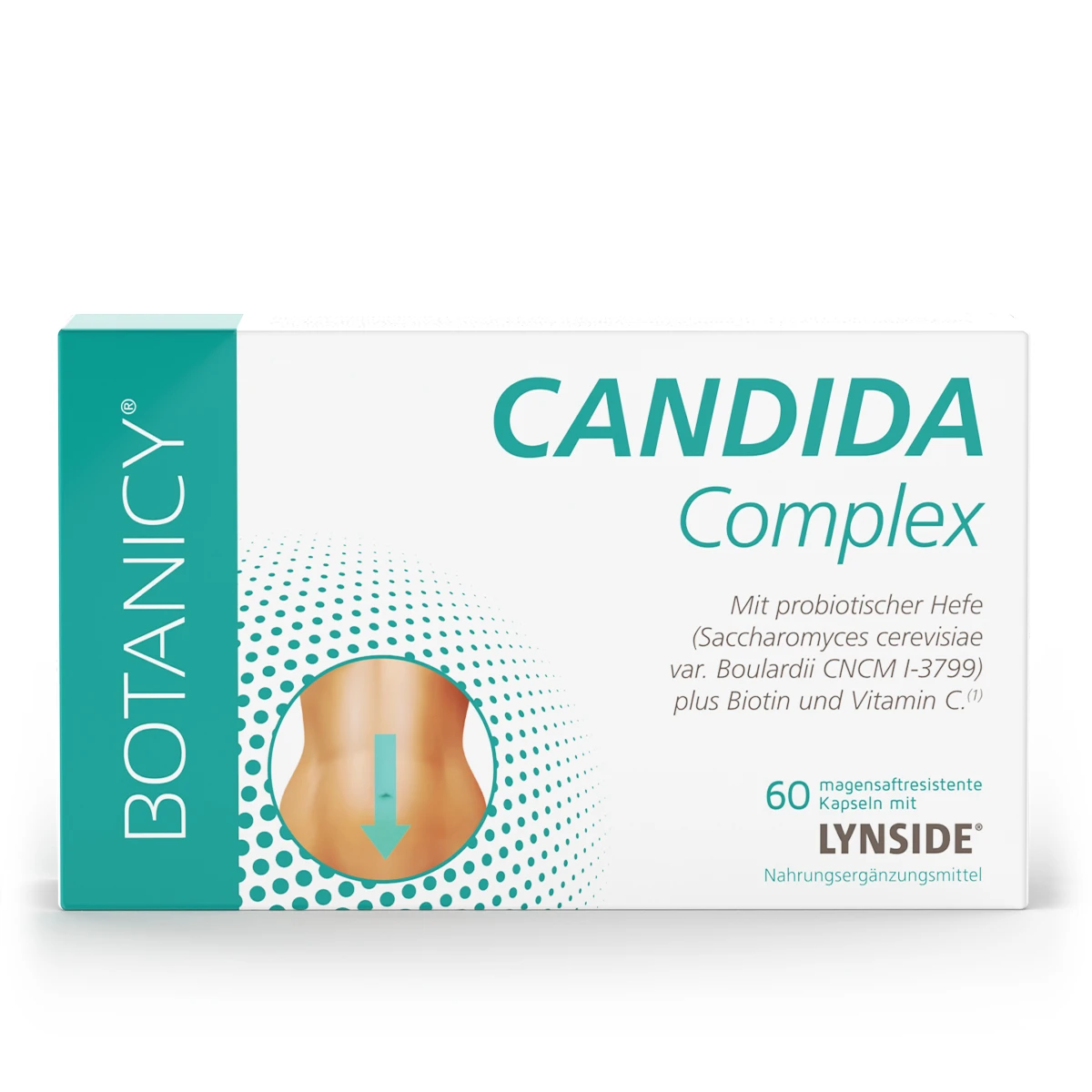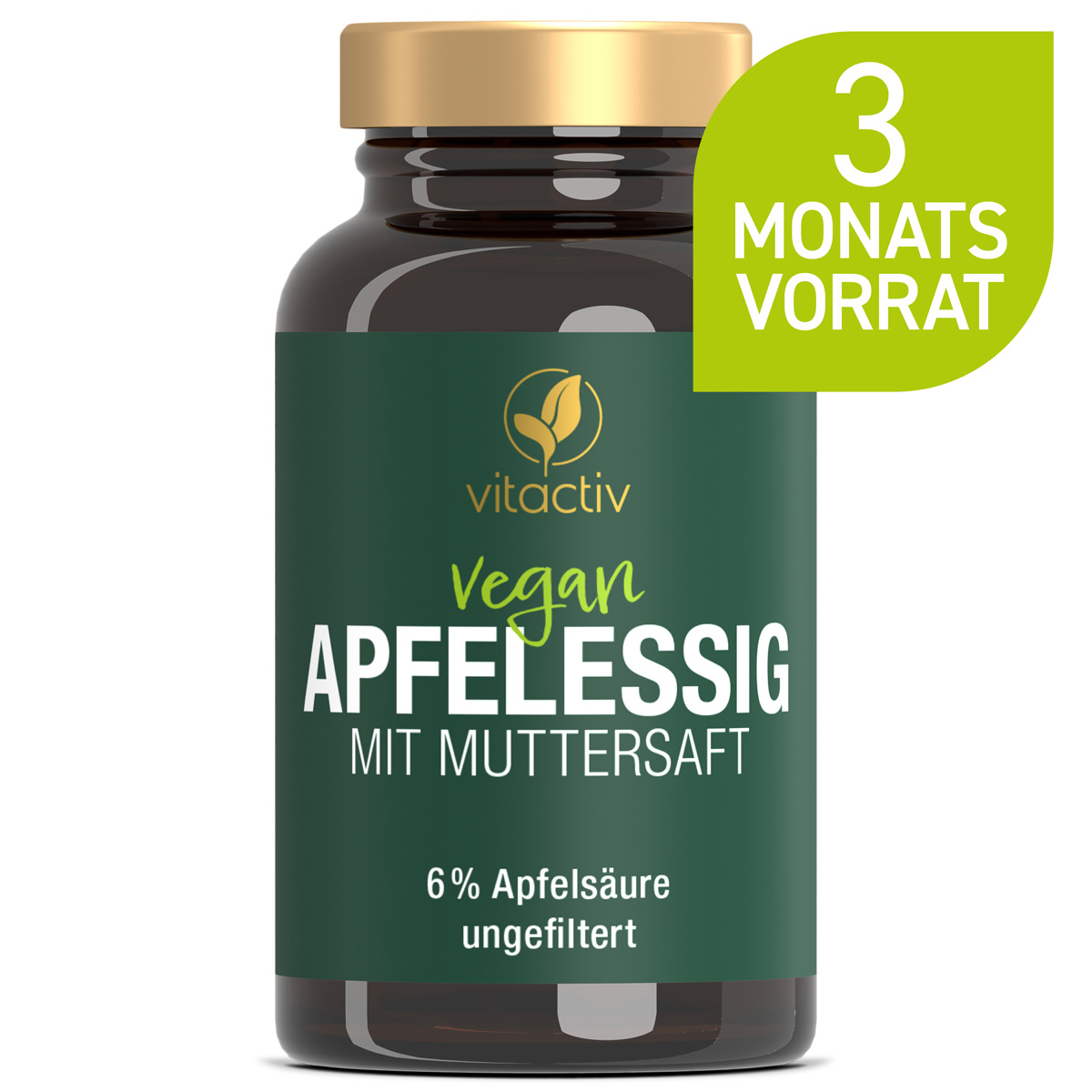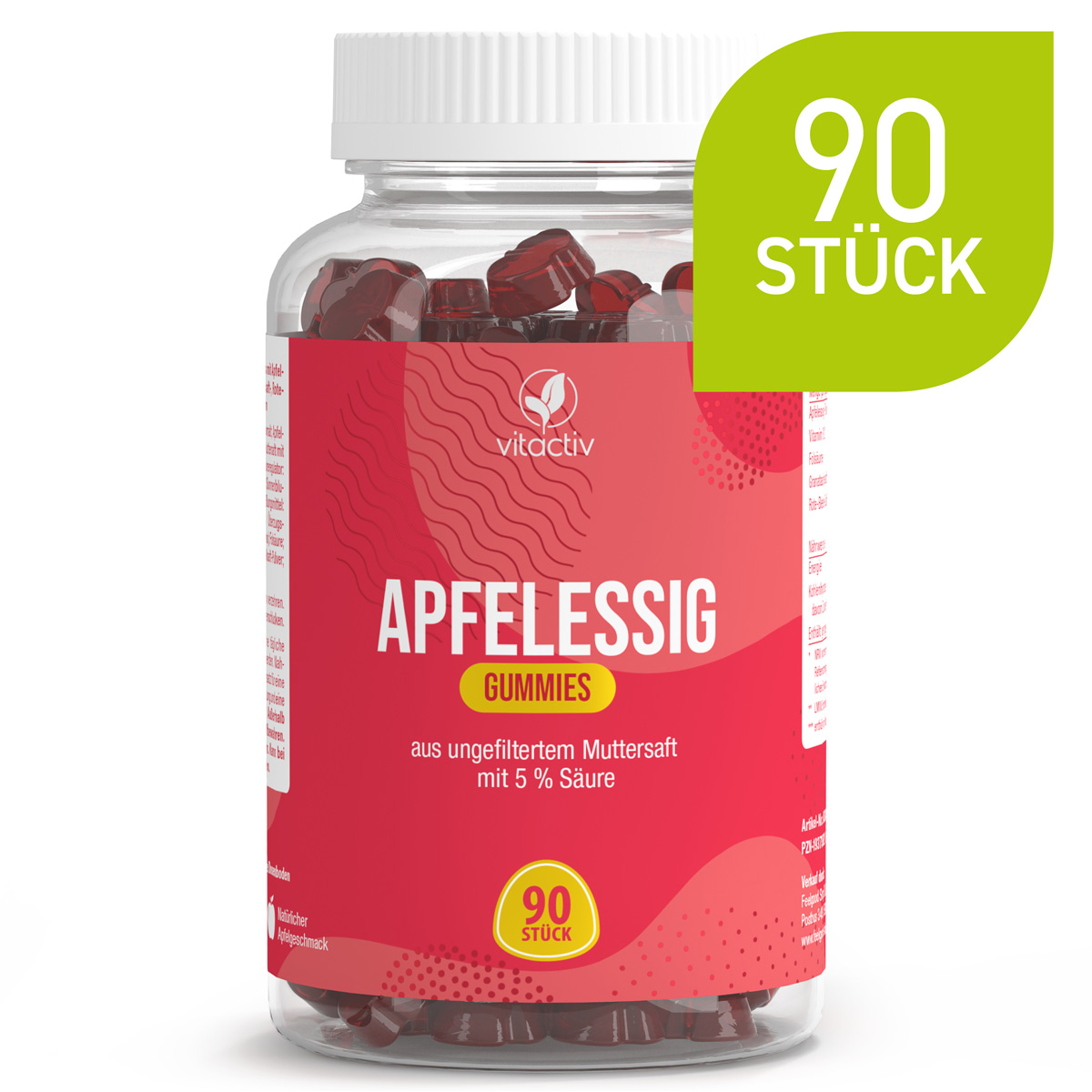Intestinal food supplements
Content: 0.023 kg (€847.39* / 1 kg)
€19.49 €22.99
(€847.39 / 1 kg)Content: 0.078 kg (€576.54* / 1 kg)
€44.97 €59.97
(€576.54 / 1 kg)Content: 0.0359 kg (€375.77* / 1 kg)
€13.49 €17.99
(€375.77 / 1 kg)Content: 0.06 kg (€226.50* / 1 kg)
€15.99 (€266.50 / 1 kg)Content: 0.05 L (€219.80* / 1 L)
€12.99 (€259.80 / 1 L)Content: 0.05 L (€269.80* / 1 L)
€13.49 €14.99
(€269.80 / 1 L)Content: 0.114 kg (€163.95* / 1 kg)
€21.99 (€192.89 / 1 kg)Content: 0.051 kg (€440.98* / 1 kg)
€24.99 (€490.00 / 1 kg)Content: 0.028 kg (€642.50* / 1 kg)
€19.99 (€713.93 / 1 kg)Content: 0.0231 kg (€588.31* / 1 kg)
€15.99 (€692.21 / 1 kg)Content: 0.27 kg (€66.63* / 1 kg)
€17.99 €19.99
(€66.63 / 1 kg)Stomach, intestines & digestion
Want to do something for your stomach, intestines & digestion? A good plan! Because the human gut, for example, is not only the largest but also the most important organ when it comes to our immune system, i.e. our defenses. Did you know that 80% of our immune cells are located in the large and small intestine alone? These immune cells can eliminate harmful microorganisms that are ingested through food on the one hand and through droplet infections on the other. Some pathogens (bacteria, viruses, fungi, parasites, etc.) are already rendered harmless by stomach acid. However, the resistant ones overcome the stomach acid unscathed - now the immune cells of our intestines come into play to prevent illness. Provided the gut is healthy ...
The gut also has an influence on our psyche and hormone levels that should not be underestimated. Whether oestrogen, testosterone, serotonin, dopamine, adrenaline, cortisol or thyroid hormones - the intestinal flora ensures the right balance of messenger substances in our body. Although the effects of intestinal flora on hormone activity have not yet been conclusively researched, the relationship between the composition of the intestinal flora and the regulation of hormones is the focus of numerous scientific studies.
You can see how important a healthy gut is for your health. Below you will find answers to questions such as "Can dietary supplements support the gut and digestion?", "Which dietary supplements are good for the gut?", "How can you tell if your gut flora is impaired?", "What helps against impaired gut flora?", "What helps to restore the gut?", "Which vitamins are missing in irritable bowel syndrome?", "Which vitamins for digestive problems?" and many more.
We give you tips for the gut and digestion. You can also buy vitamins for the gut and gut bacteria to support you in your everyday life as well as during a gut cleanse.
What strengthens the intestinal flora?
What strengthens the intestinal flora? The most obvious answer is: your diet should be as natural as possible. This is because industrially processed foods usually contain artificial additives that can damage the natural intestinal flora: Preservatives, emulsifiers, colorings, flavorings and much more.
Abdominal pain, bloating, flatulence - you know the feeling? Then you are like many people who suffer from constipation or diarrhea, for example.1 A healthy diet is the basic prerequisite for strengthening the intestinal flora, i.e. building up "good bacteria" in the intestine. This should also be as natural as possible. Fast food, ready meals and sugary foods should be avoided!
Are you able to provide your body with the necessary vitamins, fiber and enzymes through your daily diet? If not, rely on nutritional supplements that are perfectly tailored to your gut. COLON CLEANSE Ultra is a very special complex that supports digestive enzymes, among other things. The capsules contain five types of dietary fiber plus vitamin D3 and calcium.
Here are twelve tips that also support your intestinal well-being in a natural way:
- Drink a glass of lukewarm water in the morning on an empty stomach! This stimulates intestinal activity.
- Eat unprocessed food! They contain valuable vitamins for the gut. The more natural your diet is, the better it is for the intestinal bacteria. You should not buy food that contains a lot of artificial additives.
- Choose a balanced diet! Fresh fruit and vegetables in particular should not be missing from your diet. Please do not eat a one-sided diet.
- Eat fermented foods! Natural yoghurt, buttermilk, kefir or sauerkraut are probiotic foods and contain lactic acid bacteria that are good for your intestinal flora.
- Eat lots of whole grains! The German Nutrition Society also advises this.2 Bread and pasta made from white flour contain "empty calories" and tend to be the wrong food. Whole grains contain minerals and vitamins for the gut - as well as fiber, which is important for good digestion. What is easy on the gut? Eat only easily digestible foods in the evening: fish, poultry and steamed vegetables.
- Drink 1.5 to 2 liters of water or unsweetened tea per day. You should avoid sugar as far as possible anyway.
- Rely on plant-based foods such as seeds! Linseed, psyllium or chia seeds contain lots of fiber and mucilage, which swell up in the intestines and promote healthy digestion.
- Take your time! Sit down, eat slowly, chew well. Switching to a good diet also takes time. But after a few weeks you will feel the effects.
Signs of healthy intestinal flora
A healthy gut and the signs of healthy gut flora are the best basis for our well-being - both physically and mentally. If the natural intestinal flora is intact, it is not uncommon to find the following health benefits:
- a functioning immune system
- a high level of protection against infections
- healthy digestion
- a normal body weight
- a healthy psyche
The microorganisms in the intestine, i.e. the "inhabitants" of the intestinal flora, are bacteria, fungi and viruses. Sounds unhealthy at first, but the majority of them are "positive bacteria". These primarily include bifidobacteria and lactobacilli (lactic acid bacteria). It is important to promote their multiplication - and this is where prebiotics and probiotics play an important role. They are the answer to the question "How can I reorganize my intestinal flora?". And the best thing is: you can easily buy helpful gut bacteria - e.g. with pro- and prebiotic food supplements for the gut and digestion.
The most important probiotics include the two lactic acid bacteria Lactobacillus paracasei and Lactobacillus acidophilus, which primarily colonize the small intestine. Bifidobacterium lactis, i.e. bifidobacteria, belong to the so-called "rod bacteria" and do their work primarily in the large intestine. All of these are contained in PROBIOTIC Duocap capsules plus prebiotics to stimulate the bacterial strains. The addition of vitamin D3 provides additional support for the immune system.
Another top product are the capsules PROBIOLIFE Probiotika with 13 different bacterial strains. They also contain: Ficin and calcium. Ficin is an enzyme from the real fig and supports intestinal health and the microbial balance of the intestinal flora. The calcium in PROBIOLIFE Probiotics contributes to the normal function of digestive enzymes.
Do you prefer it "softer"? Then we recommend PROBIOTIK gummies with 5 billion highly effective and reproducible probiotics per two gummies. Also for chewing or sucking: SYNBIOTIK Gummies, doubly effective thanks to probiotics plus prebiotics from the dietary fiber inulin.
Supporting the natural intestinal flora
When it comes to offering support for the natural intestinal flora, a product from the "Intestinal food supplements" or "Digestive food supplements" category is a must: COLON CLEANSE Ultra. The capsules are filled with five plant extracts and powders. What makes them special is their high content of fiber and bitter substances.
Would you like to do your intestinal flora even more good? Here are four tips that you can incorporate into your daily routine:
- A fasting cure lasting several days (preferably twice a year) with steamed vegetables and lots of water and/or herbal teas relieves the intestines and intestinal flora. Fasting can also make it easier for you to start changing your diet.
- Exercise is important for the gut and healthy digestion - it stimulates blood circulation and strengthens the muscles. Ideally, 10 minutes a day is enough - a walk will also do the trick.
- Get enough sleep! Our body needs time to regenerate. 7-8 hours is ideal.
- Avoid stress! Sure, that's easier said than done. But conscious time-outs - especially in nature - with quiet moments are the best remedy for the gut for many people.
Which vitamins are good for the gut?
Which vitamins are good for the gut and gut flora? Vitamins A, C, D and of course B vitamins are essential for a healthy gut. Minerals and trace elements such as magnesium, calcium and zinc are also important.
This is the conclusion reached in the 170-page book "Was essen wir heute - Beiträge zur Gesundheitsberichterstattung des Bundes", which was published in 2002 in collaboration with the Robert Koch Institute.3
What intestinal health also depends on is functioning digestive enzymes. For example, the enzyme lactase improves the digestion of lactose in people who have problems with it. MULTI ENZYM forte is a complex with five digestive enzymes plus vitamin B6, calcium, zinc, chromium and black pepper extract to support digestion.
One of the best-selling products is CandidaEx. The capsules contain probiotic yeast powder, grapefruit seeds and garlic - plus vitamin C and biotin (vitamin B7). The ingredients not only support intestinal health, but can also help against fungal infections with "Candida albicans". These often occur in the mouth, in the gastrointestinal tract and in the female genital area.
Absorption of vitamin B1
The absorption of vitamin B1 means how well the vitamin is absorbed by the body. Good to know: A healthy intestine is a prerequisite for absorbing the important vitamin B1. A vitamin B1 deficiency is quickly present, as the vitamin is water-soluble and cannot be stored by the body, people with intestinal problems can develop a vitamin B1 deficiency. The symptoms can manifest themselves as follows
- Sleep disorders
- Muscle weakness
- Muscle pain/cramps
- weight loss
- Loss of appetite
- Cardiovascular complaints
- Irritability, anxiety and other psychological symptoms
Those affected should take vitamin B1 as a dietary supplement. High-dose vitamin B1 is contained in VITAMIN B 50 Complex and in MULTI GREEN LIFE.
Vitamin B6 and the gut
Vitamin B6 behaves in a similar way to vitamin B1. A deficiency of B6 can lead to gastrointestinal problems (diarrhea, vomiting). Vitamin B6 is mainly found in meat, fish, wholegrain products, pulses, nuts and seeds - and in MULTI 50+.
Vitamin D
We are often asked "Which vitamins are good for the gut?" or "Which vitamin helps with digestion?". Our answer: vitamin D. But why is vitamin D good for the gut? Because it supports the function of the immune system (80% of all immune cells are located in the gut) and also contributes to the absorption and utilization of calcium (calcium ensures functioning digestive enzymes).
In addition, study results from 2019 show that low vitamin D levels pose a risk for irritable bowel syndrome.4 Another study shows that a lack of vitamin D can cause constipation, which is often chronic.5
Our recommendation: PROBIOTIC Duocap, the 3-in-1 solution with probiotics + prebiotics + vitamin D in one capsule. We also recommend KALZIUM Marine 1500 + Vitamin D3 for an optimal supply of calcium and vitamin D.
1Source: Federal Union of German Pharmacists' Associations - one in four suffers from diarrhea
2Source: German Society for Nutrition e.V., nutritional practice, wholesome nutrition
3Source: Robert Koch Institute - what do we eat today?
4Source: Jalili, M., Vahedi, H., Poustchi, H., & Hekmatdoost, A. (2019). Effects of Vitamin D Supplementation in Patients with Irritable Bowel Syndrome: A Randomized, Double-Blind, Placebo-Controlled Clinical Trial. Published in the International journal of preventive medicine, 10, 16.
5Source: Alba Panarese et al (2019). Chronic functional constipation is strongly linked to vitamin D deficiency. Published in Wo
If you have any questions or need advice, please contact us.
Call us at:
0800 678 7997
Write us a message here
Use our chat at the bottom left
Search our FAQs here

